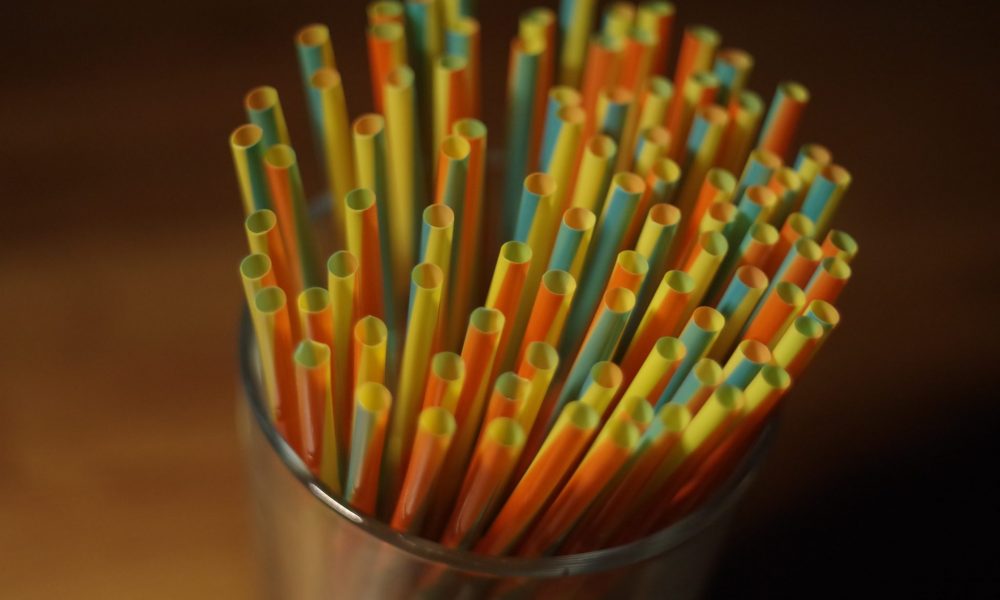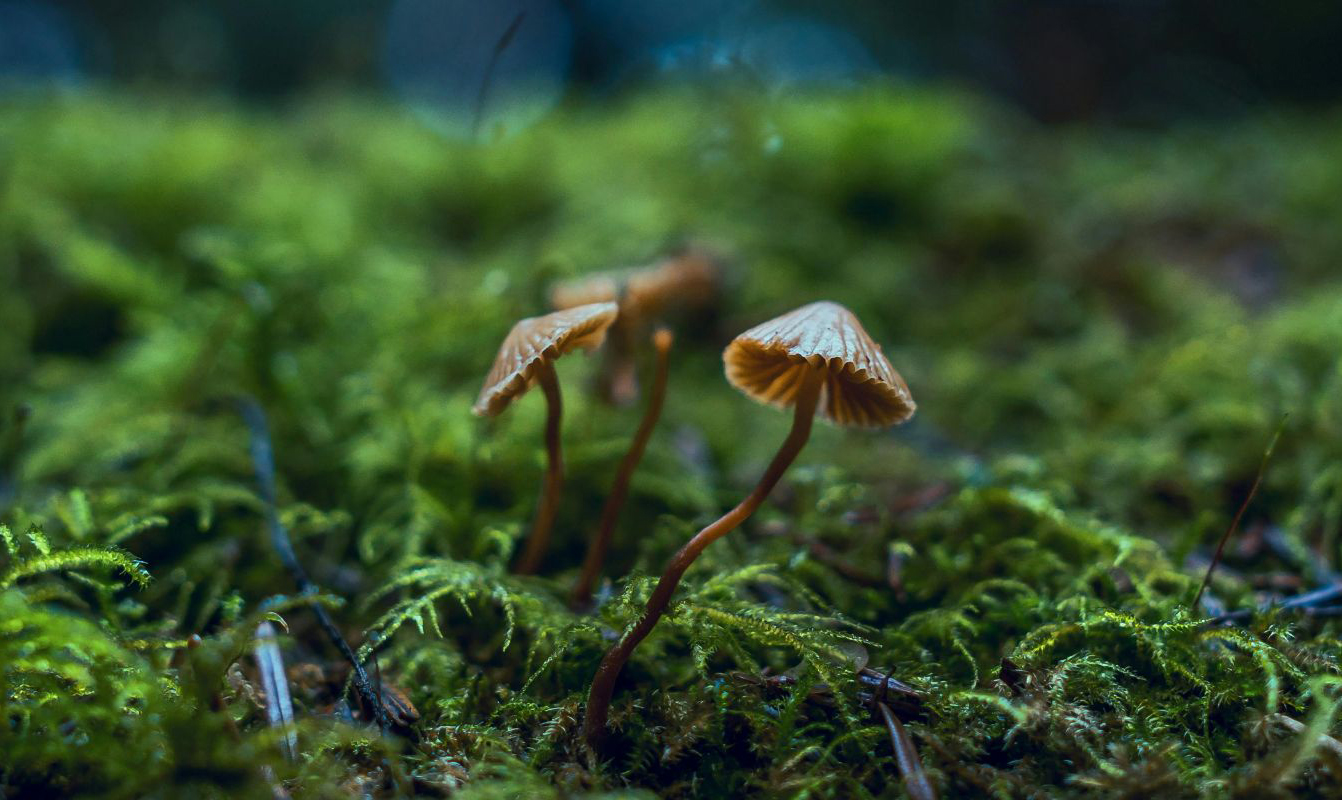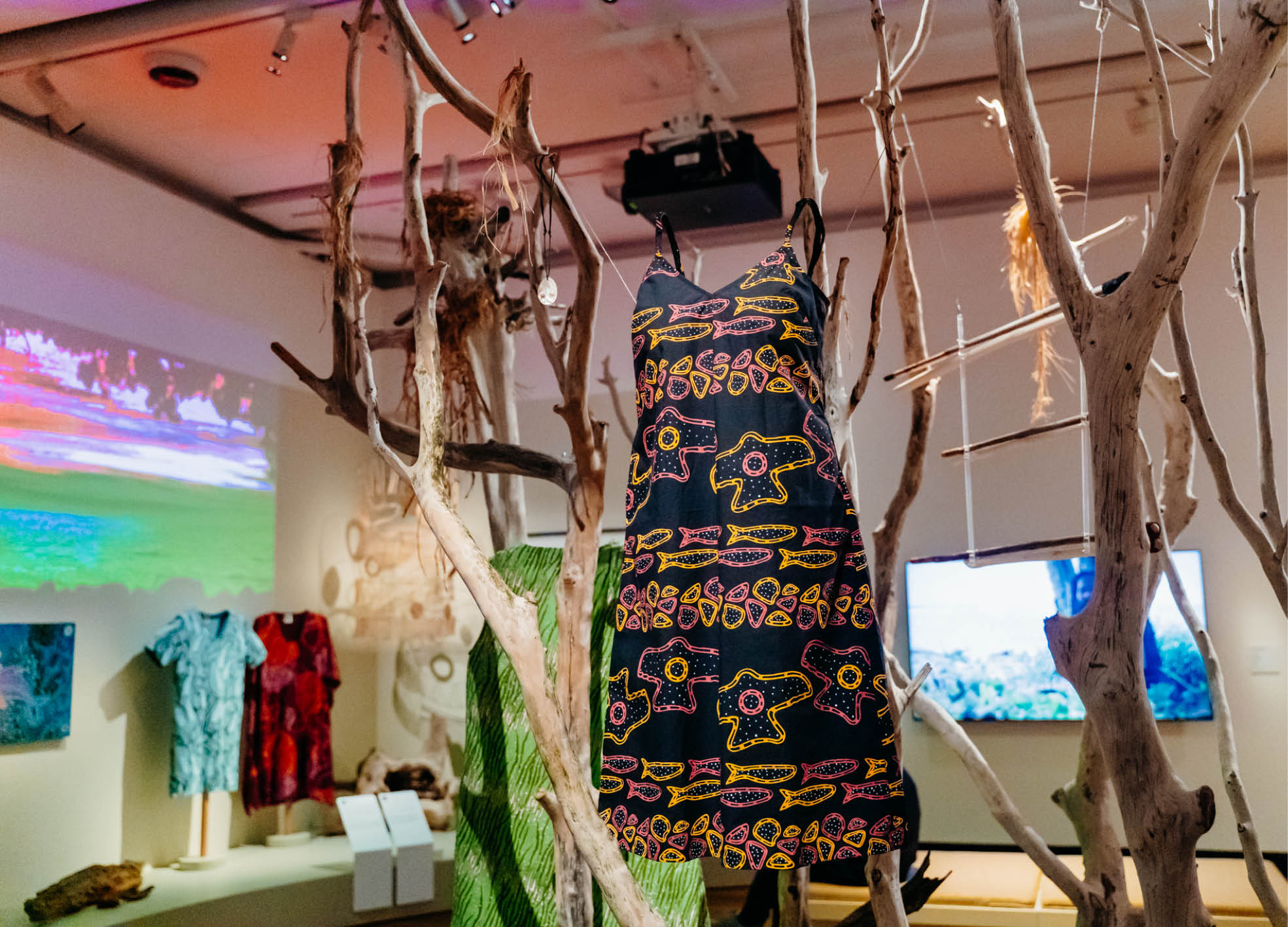Supermarket Giants Join the Plastic War

- Words by Peppermint
It’s been a big month for plastic news. As well as World Environment Day (June 5) and World Ocean Day (June 8) each focussing on the plague of plastic, Woolworths and Coles raised their games – both pledging to reduce excessive plastic packaging within their stores. Writer Linsey Rendell sifted through the promises to see exactly what it all means…
Justin Hofman’s photograph of a seahorse clutching a plastic cotton bud off the Indonesian island of Sumbawa left viewers stunned late last year, as did the recent news of a whale that died after swallowing 80 plastic bags off the coast of Thailand. Now, thanks to supermarket consumers raising their voices and objecting to their plastic-wrapped weekly shop, Woolworths and Coles have joined the conversation. The ‘Big Two’ went head-to-head with plastic and waste reform announcements on World Environment Day, and whilst some commitments were excellent (goodbye, plastic straws!), others felt a little vague.
What Woolworths is doing
- By November 1, all stores within the Woolworths Group (across Australia and New Zealand) will no longer sell plastic straws.
- ‘Green Bags’ are back and they have a new name – ‘Bag for Good’. One of these will set you back 99c and comes with a lifetime replacement offer. Money from the sales of these bags will be donated annually to the Woolworths Junior Landcare Grants Program.
- By the end of June 2018, all Woolworths supermarkets will have a REDcycle bin to recycle the soft plastics you do use.
- By the end of 2018, all Woolworths supermarkets will have a food waste diversion partner to ensure they meet their commitment of sending zero food waste to landfill by 2020.
Over the next 12 months, Woolworths will also continue its trial to remove the plastic packaging currently encasing 80 fruit and vegetable products. In the past year, it’s cut back on 140 tonnes of plastic from fruit and vegetables in response to customer complaints. Let’s hope the trial becomes permanent!
What Coles is doing
- Coles has pledged to reduce excess packaging across its stores and supply chain by introducing ‘a new program to reduce plastic wrapping of fruit and vegetables, including removing plastic packaging from all Coles-brand bananas in 2018’. The amount of reduction was not specified.
- In 2018, Plantic will supply Coles with 121 million meat and poultry trays that are recyclable and also made from recycled material.
- By 2020, all Coles-brand packaging (including grocery, meat and fresh produce) will be recyclable at kerbside or in-store.
- By 2022, Coles will divert 90% of all waste (cardboard, food and plastic) from landfill through a focus on reduction, reuse and recycling. It currently diverts 73% of all waste (2017).
- As of this year, there is a REDcycle bin at every Coles supermarket, including regional and remote areas.
Coles has also committed to halving its food waste by 2020 ‘by donating unsold edible food to people in need and diverting food waste to animal feed, clean energy, fertiliser and compost’. However, Coles refused to reveal to ABC the amount of fresh food and packaging that does currently ends up in landfill. Similarly to Woolworths, Coles has specified that all stores will be connected to SecondBite by the end of 2018.
Notably, Coles is yet to ban plastic straws outright. Woolworths’ ban on them will save 134 million plastic straws from ending up in our oceans and landfill each year – imagine if Coles committed too? You can read more about this unassuming yet incredibly damaging plastic pollutant in Issue 38 of Peppermint.
What about plastic bags?
The two supermarket giants are both about to embark on phasing out single-use lightweight plastic shopping bags, with Woolworths set to make the cut on June 20th (this includes Big W and BWS), and Coles commencing its ban on July 1st. While this should mean each chain reduces its dependency on the approximately 6.4 billion plastic bags they collectively use each year, there is a catch. Both will now be selling thick plastic bags for 15c at the check-out, which are designed to be reused. However, environmental groups have warned there is the risk that these could cause more damage if customers still dispose of them after a single use. So the best method is still to always BYO bags (and preferably bags not made of plastic).
As for the states yet to ban the single-use bag, Queensland and Western Australia’s bans kick in on July 1st, whilst New South Wales and Victoria are yet to commit. Produce bags (the kind used to gather loose vegetables) are not included in the supermarket or state bans – however Coles will soon use produce bags with 30% recycled content. This doesn’t mean the bags can be recycled, but they can be disposed of via the REDcycle soft plastic bins.
And the effect?
At our current rate of plastic production and waste, the ocean will contain more plastic than fish by 2050. But we’re already well on our way to realising this future plastic soup, with National Geographic reporting that “more than 5 trillion pieces of plastic are already floating in our oceans”. As part of the magazine’s ‘Planet or Plastic?’ campaign this month, National Geographic has also found that “the largest market for plastics today is packaging materials. That trash now accounts for nearly half of all plastic waste generated globally – most of it never gets recycled or incinerated.”
Overall, it’s incredibly important that we can cut down on packaging at every possible touchpoint – and we absolutely need mainstream economic giants like supermarkets to make the sorts of commitments to that ensure it’s possible. Our oceans, our wildlife, our climate and our health all depend on it.
JOIN OUR MAILING LIST
Brighten up your inbox with our not-too-frequent emails featuring Peppermint-related news, events, competitions and more!
explore
More articles
It’s beginning to look a lot like Christmas…. Which means we are officially entering party season. Work parties, friend-dos, family get-togethers and then we’re straight into New Year festivities. If you’re lucky enough, you might be staring down the barrel…
Look, I don’t want to make anyone panic but IT’S DECEMBER!!! If you’re planning to give homemade gifts, you’re going to have to act fast. …
Furred, feathered, fishy, scaled… The pets we choose are as diverse as our personalities. (And apparently, quite often we resemble each other.) But they all…
When you hang a painting on a wall, the story stays put. But when you wear a beautifully made garment that may as well be…
Hang out with us on Instagram
“We love that we can bring a hint of imagination and whimsy into everyday life by making ordinary objects fun. We’ve learned to appreciate the little wins and to take a moment for each step we achieve.”
Disillusioned by the realities of fast fashion, design grads Emily May and Sidonie Moore ditched clothing for a business that finds fun in the everyday. Enter @TheNonsenseMaker: a collection of unique homewares, fun wall art, greeting cards and more that breathe life into Emily’s illustrations: “I love the idea of taking real-world objects and changing your perspective in a way that brings magic and whimsy into everyday life!”
In issue 64’s feature ‘It all makes sense’, we chat to the Naarm/Melbourne-based duo about their sustainability philosophy, TV re-runs and their commitment to local makers. At stockists now!
Photos: @MeAndMyGirl
#PeppermintMagazine #TheNonsenseMaker #LocalMakers #SustainableCraft

Any New Year’s resolutions on your list? We love this from @OtterBeeStitching - “be brave enough to suck at something new”.
There’s no points for perfection, but you’ll get a trophy for trying. If nothing else this year, take the leap and try something new.
#OtterBeeStitching #Embroidery #BeBrave #TrySomethingNew #EmbroideryArt

Sunday serving suggestion ☀️
Gorgeous photos from @JolieFemmeStore - who make sweet garments from vintage bedsheets.
#PeppermintMagazine #SlowSunday #SwitchOff #Unplug #ReadAMagazine

A toast to the old you 🥂
We wholeheartedly love this post from the brilliant @EmilyOnLife:
“2026: Reinvent, burn it down, let it go (whatever it is). Year of the Snake it up. Exercise your boundaries, exercise your body, take one teeny step every day towards a life that feels better to be in.
But don’t you dare shit on your old self while you do it.
Hold yourself with reverence and tenderness and respect, because you got you this far. You did your very best with the information and tools you had at the time. You scraped yourself together, you made it work, you survived what felt impossible to survive: again and again and again.
You are perpetually in the process of becoming, whether you can feel it or not, whether or not you add it to your 2026 to-do list.“

Some very wise words from @Damon.Gameau to take us into 2026 🙌🏼

⭐️ We made it!!! ⭐️
Happy New Year, friends. To those who smashed their goals and achieved their dreams, and to those who are crawling over the finish line hoping to never speak of this year again (and everyone else in between): we made it. However you got here is enough. Be proud.
It’s been a tough year for many of us in small business, so here’s to a better year in 2026. We’re forever grateful for all your support and are jumping for joy to still be here bringing you creativity, kindness and community.
We’re also excited to be leaping into the NY with our special release sewing pattern – the Waratah Wrap Dress!
How great are our fabulous models: @Melt.Stitches, @KatieMakesADress and @Tricky.Pockets - and also our incredible Sewing Manager @Laura_The_Maker! 🙌🏼
Ok 2026: let’s do this. 💪🏼
#PeppermintWaratahWrapDress #PeppermintPatterns #SewingPattern #MeMade #WrapDress #WrapDressPattern

















